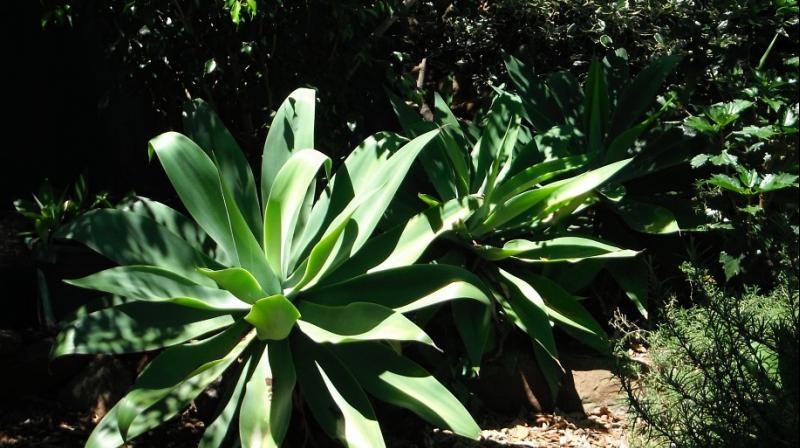Tequila plant may be key to fighting droughts, climate change
The potential is huge in terms of developing crops and biofuels that are able to withstand the challenges of a changing climate.

London: Agave - the cactus-like plant used to make tequila - can survive the driest of conditions by 'breathing' at night, say scientists who hope to harness the
plant's reverse 'body clock' to engineer drought-resistant crops that can adapt to changing climate.
Researchers found for the first time that the stomata - or 'breathing' pores - on the Agave's leaves are kept shut during the day to minimise water loss. The process is opposite to that of most plants which keep their stomata open during the day so they can take in carbon dioxide and use the sunlight for photosynthesis.
However, this also means they lose water rapidly through evaporation. "Photosynthesis needs three key ingredients - CO2, water and sunlight - so it follows that most plants keep their stomata open in the day when it is sunny and shut at night when it is dark," said Anne Borland, professor at Newcastle
University in the UK.
"But for a plant living in hot, arid conditions such as the Agave, this would be disastrous," Borland said. "They need to conserve every drop of water they can and leaving their stomata open during the day would result in such rapid water loss they would simply die," she said. "What we have shown in this study is that in so-called CAM plants - Crassulacean Acid Metabolism plants like the Agave -
several of the genes controlling stomatal opening have had their abundance re-scheduled or 'flipped' from being more abundant during the day to more abundant at night," she said.
"Storing the carbon from the CO2 taken up overnight, the plants photosynthesise in the day like other plants but are able to carry out the process without opening their stomata," said Borland. "If we can harness these genes and engineer new
drought-resistant plants then the potential is huge in terms of developing crops and biofuels that are able to withstand the challenges we face from a changing climate," she said. The findings were published in the journal Nature Plants.
